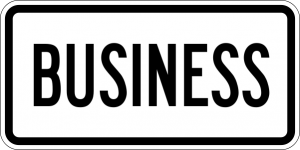By Denise Turney
Aside from journalism, writing has long been considered solely as a creative art form, meaning earning a living while utilizing one’s craft wasn’t considered to be as necessary for writers as it was for professionals working in other disciplines. For example, few people would dial up a plumber, ask her to come over to fix a leaky pipe or clogged drain then smile at her an hour later, after she finished the job, shake her hand, and say, “Gee, thanks. You do great work. I’ll be sure to tell others about you” and think those compliments sufficed for the plumber’s pay.
What Should You Charge as a Writer?
Switch the plumber with a writer, and clients, even some leaders who are all too familiar with the challenges that may come with launching a new business, feel little discomfort asking writers to conduct 30 or more minutes of research and an additional hour of writing and editing an article absent financial compensation. The chance to “get published and build your portfolio” is often marketed as the great reward for a writer’s efforts in these situations.
Visiting the above situations might generate a myriad of emotions in you. You could go mute about the recurring events. Or you could get angry or sulk in despair. Doesn’t matter, because one fact remains constant, and that is the fact that it’s up to individual writers to ensure they’re adequately compensated for their work.
As a writer, to do this, you need to determine what your services and creative products are worth to you, readers, business leaders, marketers and/or educators. Getting a pulse on the market might require you to:
- Conduct a market research study on the types of articles or other feature content you create (Firms like Econosystems and O’Connor and Associates might be able to help you conduct an in-depth market study on your books and other written content). You can also reference market studies provided by colleges and universities.
- Review reports generated by companies and periodicals like Bowker, Publisher’s Weekly, the National Writer’s Union and Poet’s and Writers to familiarize yourself with the numbers of books published in genres you write in. See if you can identify similar features bestselling books in the genres have (e.g. catchy book title, intriguing back jacket overview).
- Create a website (of course, as a creative business leader, you already have a “sticky” website) and conduct a survey, asking your site’s visitors to tell you what they value most about your content. (It might be tempting to identify what you value most about your work and then try to force or manipulate others to see things your way, but buyer’s will always have their own opinions about your work, and they’ll generally share those thoughts and feelings with you when they reach the cash register.)
- Visit writing job boards like Media Bistro, Journalism Jobs, Morning Coffee and Freelance Writing Jobs and review the wages respected and solvent companies are paying writers to perform jobs similar to work you provide.
- Join professional writer’s groups and ask group members for a per article price range for types of articles you write.
Writer Self-Belief May Impact Your Business Success
To grow your business as a writer who creates non-book length content (e.g. TV sitcom scripts, search engine optimization (SEO) articles, grant or proposal writing, technical guides) spend a certain amount of time each day (e.g. 20 minutes) searching for writing jobs. Keep a spreadsheet or other record and list the dates you apply for writing jobs, including contact information for prospecting hiring managers and writing clients (the name and email address of hiring managers is sufficient).
As a book writer, you can set aside time each day to search for reputable literary agents, editors and publishers to work with to polish your manuscripts and/or get your creative works published. Approach your work with a level of commitment that propels you forward, even when rejections challenge your inspiration.
After you land writing jobs, consider logging how much time you spend working on individual projects or writing assignments. This way you can see how much you’re earning an hour for the total amount of work you contribute to a piece.
As you continue to learn about the book and writing industries, you’ll gain insights that can help you to strengthen your writing rate negotiation skills. You can also acquire the view that you’re a business professional, someone who’s on the cutting edge of creative success. And oddly, as you start to see yourself as a creative business leader, your actions, thoughts, opinions about yourself and behaviors may shift in ways that allow you to take greater strides forward. And whether you realize it or not, people all over the world are waiting for you to do just that! Keep in mind that what you give of your talents and skills, others gain.
Get into Spiral online at: https://www.ebookit.com/books/0000000841/Spiral.html
Check out Long Walk Up online at: https://www.ebookit.com/books/0000000531/Long-Walk-Up.html





If we writers don’t know what our writing is worth someone else just might tell us (and be totally wrong in their assessment).
Agree. As writers confidence increases, the types of jobs they search and apply for and accept improves. Thanks for your feedback and for visiting us.